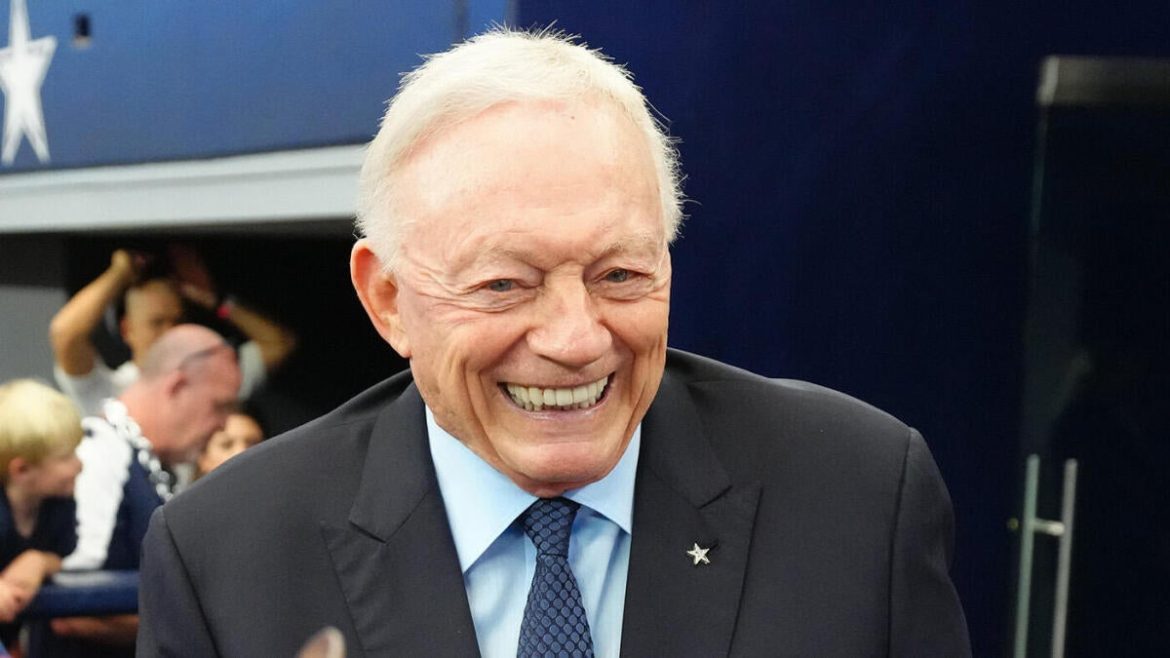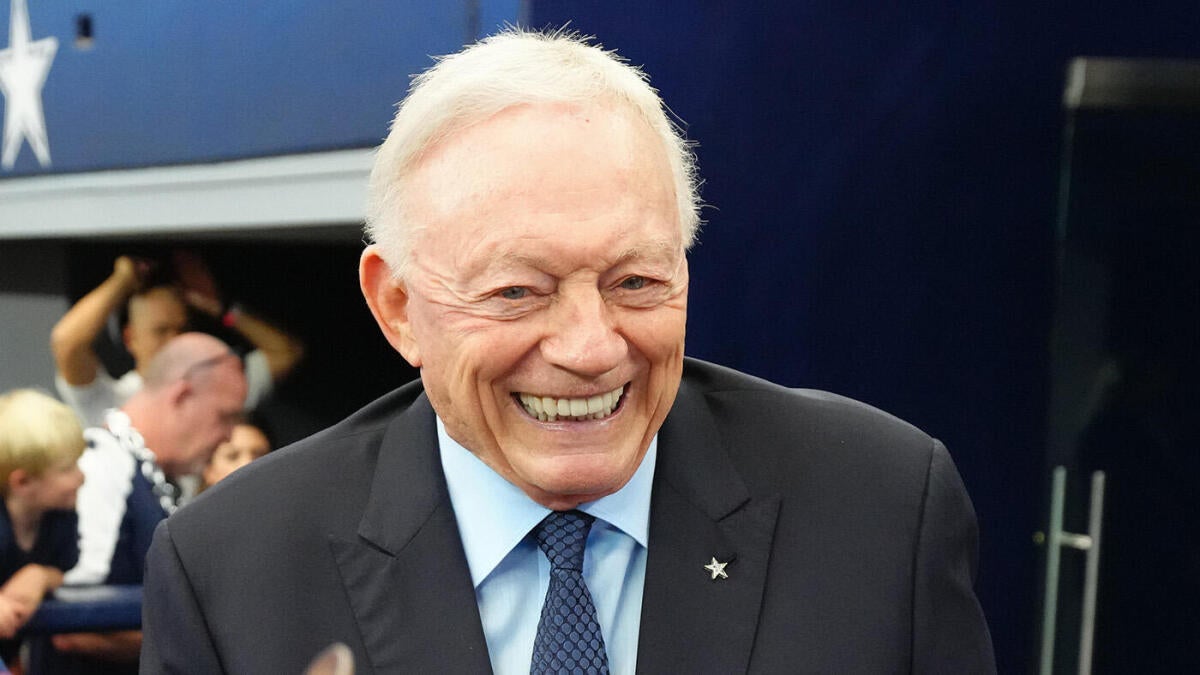The Controversy Surrounding the Dallas Cowboys as “America’s Team”
The label “America’s Team” has long been associated with the Dallas Cowboys, an NFL franchise rich in history and national recognition. This nickname, popularized in the 1970s, especially through a 1978 NFL Films highlight narrated by John Facenda, suggests a universal appeal and prominence that transcends regional loyalty. However, in recent years, this title has provoked debate, dissected through fans’ allegiances, media commentary, and the evolving performance of the Cowboys.
Origins of the Nickname and Its Symbolism
The term “America’s Team” first gained traction after the 1978 season when the Cowboys were featured in a highlight film accompanied by the iconic narrator, who noted their faces were “as familiar to the public as presidents and movie stars.” The moniker quickly stuck, fueled by the team’s dominant performances, frequent national television appearances, and a strong, widespread fan base. The original designation was partly a reflection of how often the Cowboys were televised, making them accessible to a broad American audience.
This branding was also strategic—Tex Schramm, then the Cowboys’ president and general manager, with a background in television, helped elevate the franchise’s profile nationally, making it a household name. The Cowboys’ iconic star logo, cheerleaders, and stylish presentations further reinforced its image as an emblematic American team.
The Team’s Legacy and National Relevance
Historically, the Dallas Cowboys boast five Super Bowl titles and a consistent presence in NFL playoffs, underpinning their claim to national prominence. Beyond championships, their frequent appearances on Thanksgiving Day and Christmas Day games highlight their status as a marquee franchise in the league. NFL officials often schedule the Cowboys for prime-time national games because of their historical popularity and widespread fan support.
However, the franchise’s relevance is not solely based on athletic success. The Cowboys serve as a cultural touchstone in American sports, with their brand extending beyond just football into business and entertainment realms. They are often described as one of the most commercially successful and valuable sports franchises worldwide, which bolsters the “America’s Team” image.
The Debate: Does the Title Still Fit?
Despite their legacy, recent years have seen doubts about whether the label remains deserved. Media outlets, commentators, and fans have increasingly challenged the Cowboys’ claim to being “America’s Team.” Criticisms largely center around the team’s lack of recent success compared to other franchises such as the Kansas City Chiefs or emerging teams like the Washington Commanders, who have made strides in performance and fan engagement.
A growing number of critics argue the Cowboys’ national relevance is fading, with their playoff absences and uneven performances diminishing their claim. The appearance of other franchises in national spotlight games, often with better records or championship prospects, invites reconsideration of who truly holds the mantle of “America’s Team.”
Moreover, some pundits and fans perceive the nickname as divisive or presumptuous. The Cowboys’ fan base, though large and loyal, has garnered a reputation as one of the most disliked or “annoying” in sports, sometimes tainting the team’s image nationally. This negativity is occasionally attributed to the fervor and ubiquity of Cowboys support, perceived entitlement, and media amplification.
Rivalries and Ownership Influence
The rivalry between the Cowboys and teams like the Washington Commanders intensifies the discourse. The Commanders’ ownership and fan base have explicitly contested the Cowboys’ claim, labeling themselves or others as more deserving. This adds a competitive layer to the debate, intertwining identity, regional pride, and national perception.
Jerry Jones, the Cowboys’ owner, has played a pivotal role in maintaining the team’s limelight, using media savvy and bold moves to keep the franchise in headlines—even when on-field results have been underwhelming. Despite criticism, Jones embraces and reinforces the franchise’s self-image as America’s Team, highlighting its branding power regardless of the win-loss record.
Fan Perspectives and Cultural Impact
Fan sentiment offers a mosaic of opinions. Die-hard Cowboys supporters firmly defend the nickname, emphasizing the team’s rich heritage, branding, and broader cultural significance. On the other hand, many NFL supporters from other franchises reject “America’s Team” as a misnomer or arrogance.
The nickname’s polarization reflects broader American cultural dynamics—issues of loyalty, media influence, regional pride, and commercialization of sports. While some see the Cowboys as embodying enterprise, style, and national appeal, others view the title as outdated or inflated, especially as other teams gain prominence through recent achievements.
Comparisons with Other NFL Franchises
The Kansas City Chiefs have emerged as a strong competitor for the national spotlight, with recent Super Bowl victories and numerous primetime games. Advocates for the Chiefs argue their consistent success and growing fan base should eclipse the Cowboys’ claim. Similarly, the Washington Commanders aim to reshape their national profile and challenge Dallas’ branding dominance.
Polling data indicates a shift in national relevance, suggesting the Cowboys’ grip as “America’s Team” may be loosening. Yet, the Cowboys continue to command significant media attention and maintain an extensive fan base, ensuring their place in ongoing discussions.
Conclusion: The Enduring Complexity of “America’s Team”
The question of whether the Dallas Cowboys remain truly “America’s Team” defies a simple answer. Rooted in history, brand identity, and cultural symbolism, the title encapsulates more than on-field success—it reflects media exposure, fan engagement, and commercial reach. While recent performance and national sentiment may challenge their position, the Cowboys’ legacy and continued prominence keep them central in this debate.
Ultimately, “America’s Team” symbolizes not just who wins or loses, but who captures the American imagination at a given moment. Whether that remains Dallas or passes to another franchise will depend on a complex mix of athletic performance, marketing acumen, and the ever-evolving dynamics of American sports fandom. The debate is emblematic of how sports teams become entwined with identity, pride, and national narrative—making the Cowboys’ story a compelling chapter in NFL lore for years to come.





